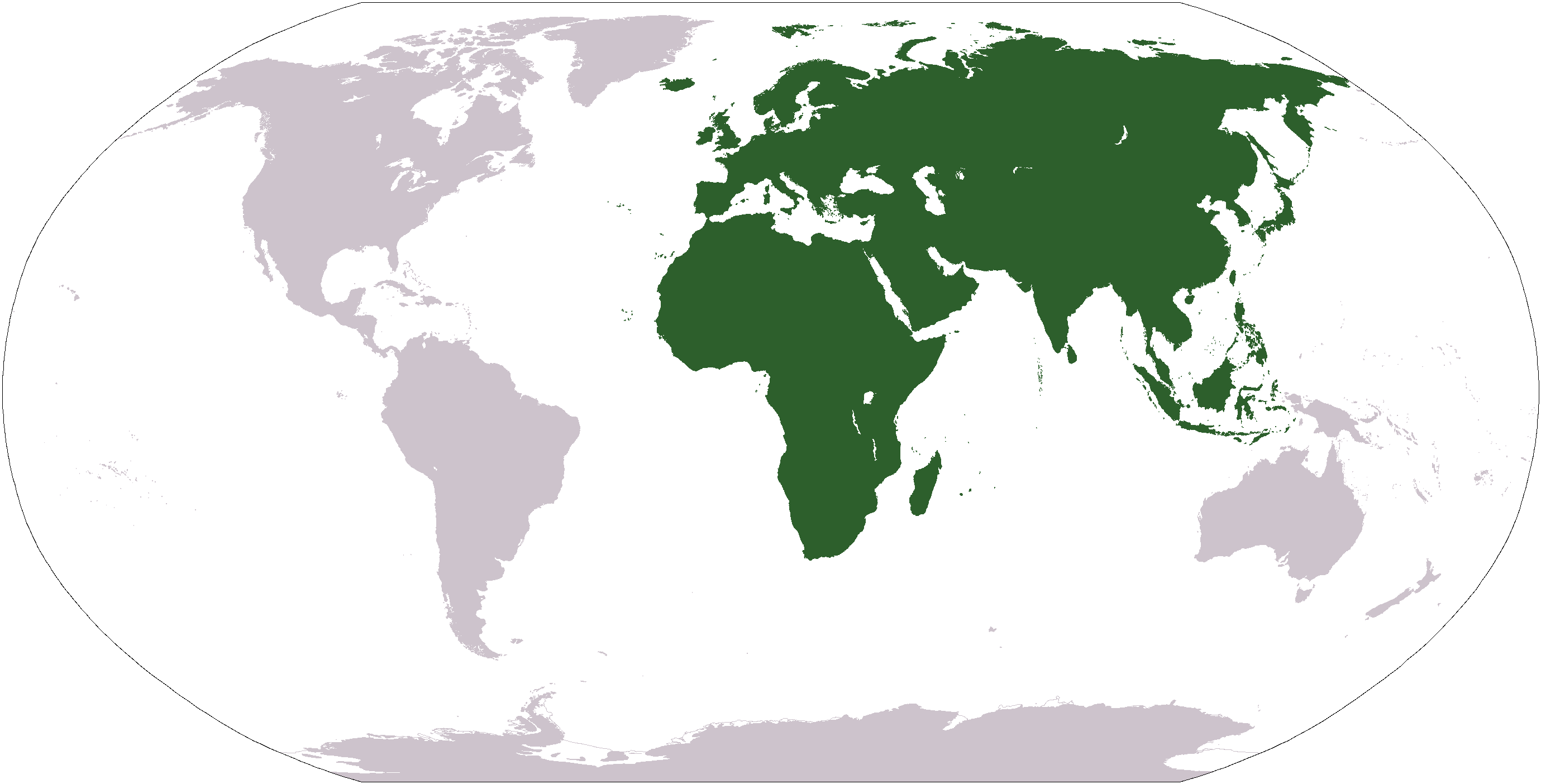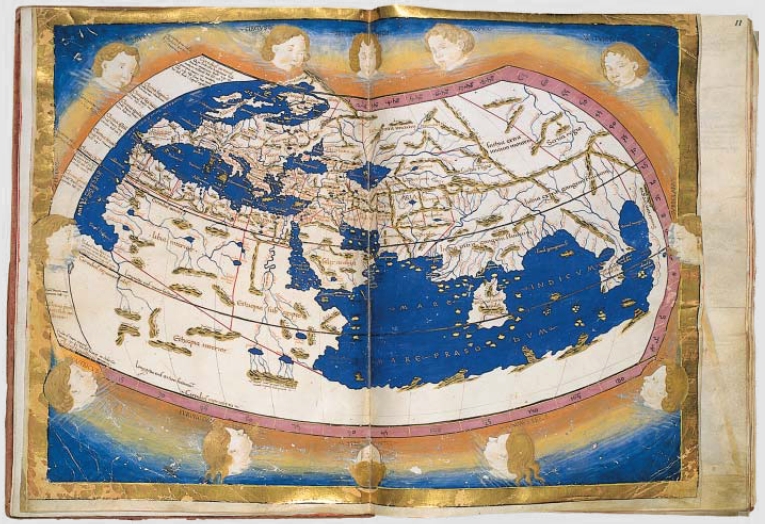Old World on:
[Wikipedia]
[Google]
[Amazon]

 The "Old World" is a term for Afro-Eurasia that originated in
The "Old World" is a term for Afro-Eurasia that originated in
"Mackinder's World"
''American Diplomacy'' (UNC.edu). Retrieved 8 September 2018.

 The "Old World" is a term for Afro-Eurasia that originated in
The "Old World" is a term for Afro-Eurasia that originated in Europe
Europe is a large peninsula conventionally considered a continent in its own right because of its great physical size and the weight of its history and traditions. Europe is also considered a subcontinent of Eurasia and it is located enti ...
, after Europeans became aware of the existence of the Americas. It is used to contrast the continents of Africa
Africa is the world's second-largest and second-most populous continent, after Asia in both cases. At about 30.3 million km2 (11.7 million square miles) including adjacent islands, it covers 6% of Earth's total surface area ...
, Europe
Europe is a large peninsula conventionally considered a continent in its own right because of its great physical size and the weight of its history and traditions. Europe is also considered a subcontinent of Eurasia and it is located enti ...
, and Asia
Asia (, ) is one of the world's most notable geographical regions, which is either considered a continent in its own right or a subcontinent of Eurasia, which shares the continental landmass of Afro-Eurasia with Africa. Asia covers an ...
, which were previously thought of by their inhabitants as comprising the entire world, with the "New World
The term ''New World'' is often used to mean the majority of Earth's Western Hemisphere, specifically the Americas."America." ''The Oxford Companion to the English Language'' (). McArthur, Tom, ed., 1992. New York: Oxford University Press, p. ...
", a term for the newly encountered lands of the Western Hemisphere, particularly the Americas.
Etymology
In the context ofarchaeology
Archaeology or archeology is the scientific study of human activity through the recovery and analysis of material culture. The archaeological record consists of Artifact (archaeology), artifacts, architecture, biofact (archaeology), biofacts ...
and world history, the term "Old World" includes those parts of the world which were in (indirect) cultural contact from the Bronze Age
The Bronze Age is a historic period, lasting approximately from 3300 BC to 1200 BC, characterized by the use of bronze, the presence of writing in some areas, and other early features of urban civilization. The Bronze Age is the second pri ...
onwards, resulting in the parallel development of the early civilization
A civilization (or civilisation) is any complex society characterized by the development of a state, social stratification, urbanization, and symbolic systems of communication beyond natural spoken language (namely, a writing system).
C ...
s, mostly in the temperate
In geography, the temperate climates of Earth occur in the middle latitudes (23.5° to 66.5° N/S of Equator), which span between the tropics and the polar regions of Earth. These zones generally have wider temperature ranges throughout t ...
zone between roughly the 45th and 25th parallels north, in the area of the Mediterranean
The Mediterranean Sea is a sea connected to the Atlantic Ocean, surrounded by the Mediterranean Basin and almost completely enclosed by land: on the north by Western and Southern Europe and Anatolia, on the south by North Africa, and on th ...
, including North Africa
North Africa, or Northern Africa is a region encompassing the northern portion of the African continent. There is no singularly accepted scope for the region, and it is sometimes defined as stretching from the Atlantic shores of Mauritania in t ...
. It also included Mesopotamia
Mesopotamia ''Mesopotamíā''; ar, بِلَاد ٱلرَّافِدَيْن or ; syc, ܐܪܡ ܢܗܪ̈ܝܢ, or , ) is a historical region of Western Asia situated within the Tigris–Euphrates river system, in the northern part of the F ...
, the Persian plateau, the Indian subcontinent
The Indian subcontinent is a physiographical region in Southern Asia. It is situated on the Indian Plate, projecting southwards into the Indian Ocean from the Himalayas. Geopolitically, it includes the countries of Bangladesh, Bhutan, India ...
, China, and parts of Sub-Saharan Africa.
These regions were connected via the Silk Road trade route, and they have a pronounced Iron Age
The Iron Age is the final epoch of the three-age division of the prehistory and protohistory of humanity. It was preceded by the Stone Age (Paleolithic, Mesolithic, Neolithic) and the Bronze Age (Chalcolithic). The concept has been mostly appl ...
period following the Bronze Age. In cultural terms, the Iron Age was accompanied by the so-called Axial Age
Axial Age (also Axis Age, from german: Achsenzeit) is a term coined by German philosopher Karl Jaspers. It refers to broad changes in religious and philosophical thought that occurred in a variety of locations from about the 8th to the 3rd cent ...
, referring to cultural, philosophical and religious developments eventually leading to the emergence of the historical Western ( Hellenism, " classical"), Near Eastern (Zoroastrian
Zoroastrianism is an Iranian religion and one of the world's oldest organized faiths, based on the teachings of the Iranian-speaking prophet Zoroaster. It has a dualistic cosmology of good and evil within the framework of a monotheistic ...
and Abrahamic) and Far Eastern (Hinduism
Hinduism () is an Indian religion or ''dharma'', a religious and universal order or way of life by which followers abide. As a religion, it is the world's third-largest, with over 1.2–1.35 billion followers, or 15–16% of the global po ...
, Buddhism
Buddhism ( , ), also known as Buddha Dharma and Dharmavinaya (), is an Indian religion or philosophical tradition based on teachings attributed to the Buddha. It originated in northern India as a -movement in the 5th century BCE, and ...
, Jainism
Jainism ( ), also known as Jain Dharma, is an Indian religion. Jainism traces its spiritual ideas and history through the succession of twenty-four tirthankaras (supreme preachers of ''Dharma''), with the first in the current time cycle being ...
, Sikhism
Sikhism (), also known as Sikhi ( pa, ਸਿੱਖੀ ', , from pa, ਸਿੱਖ, lit=disciple', 'seeker', or 'learner, translit= Sikh, label=none),''Sikhism'' (commonly known as ''Sikhī'') originated from the word ''Sikh'', which comes fr ...
, Confucianism
Confucianism, also known as Ruism or Ru classicism, is a system of thought and behavior originating in ancient China. Variously described as tradition, a philosophy, a religion, a humanistic or rationalistic religion, a way of governing, or ...
, Taoism
Taoism (, ) or Daoism () refers to either a school of philosophical thought (道家; ''daojia'') or to a religion (道教; ''daojiao''), both of which share ideas and concepts of Chinese origin and emphasize living in harmony with the '' Ta ...
) cultural spheres.
The term has been discussed as problematic, since it applies a colonial perspective of discovery and is not indicative of the historic or geographic complexity of world regions.
Other names
Themainland
Mainland is defined as "relating to or forming the main part of a country or continent, not including the islands around it egardless of status under territorial jurisdiction by an entity" The term is often politically, economically and/or dem ...
of Afro-Eurasia (excluding island
An island or isle is a piece of subcontinental land completely surrounded by water. Very small islands such as emergent land features on atolls can be called islets, skerries, cays or keys. An island in a river or a lake island may be ...
s or island groups such as the British Isles
The British Isles are a group of islands in the North Atlantic Ocean off the north-western coast of continental Europe, consisting of the islands of Great Britain, Ireland, the Isle of Man, the Inner and Outer Hebrides, the Northern Isles (O ...
, Japan, Sri Lanka
Sri Lanka (, ; si, ශ්රී ලංකා, Śrī Laṅkā, translit-std=ISO (); ta, இலங்கை, Ilaṅkai, translit-std=ISO ()), formerly known as Ceylon and officially the Democratic Socialist Republic of Sri Lanka, is an ...
, Madagascar
Madagascar (; mg, Madagasikara, ), officially the Republic of Madagascar ( mg, Repoblikan'i Madagasikara, links=no, ; french: République de Madagascar), is an island country in the Indian Ocean, approximately off the coast of East Africa ...
and the Malay Archipelago) has been referred to as the ''World Island''. The term may have been coined by Sir Halford John Mackinder in '' The Geographical Pivot of History''.See Francis P. Sempa"Mackinder's World"
''American Diplomacy'' (UNC.edu). Retrieved 8 September 2018.
See also
*New World
The term ''New World'' is often used to mean the majority of Earth's Western Hemisphere, specifically the Americas."America." ''The Oxford Companion to the English Language'' (). McArthur, Tom, ed., 1992. New York: Oxford University Press, p. ...
* Eurocentrism
* Afro-Eurasia
References
{{Western culture 16th-century neologisms Afro-Eurasia Cultural regions Geographical regions Human geography European culture African culture Asian culture European colonisation in Africa European colonisation in Asia Country classifications Cultural history Age of Discovery European Cultural History